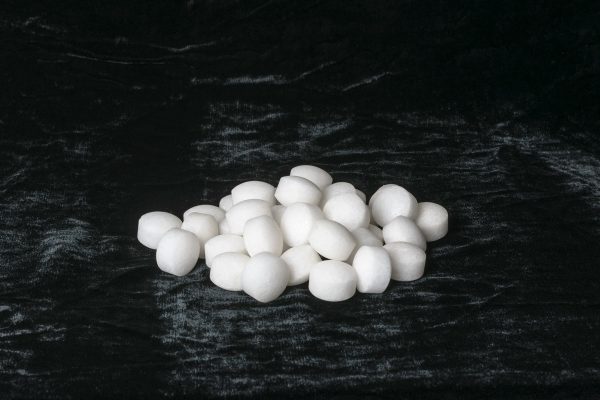Zucchini squash is a year-rounder fruit that can last for days when stored properly. Since it’s always available in most regions, you might not put in the effort to store it properly, but that’s not really good practice. So, what exactly is the best way to store zucchinis? We have researched answers to find out.
Zucchinis can manage to stay fresh if you put them in the refrigerator whole and dry. Put them in an open paper bag and store them in the crisper drawer until ready to eat or prepare. If you want the zucchini to last for months, you need to blanch and freeze it.
There are many ways you can store and consume zucchini squashes. They can be eaten as snacks or like a regular meal depending on your preference, which is why you need to store them more effectively. If you are interested to learn more about storing zucchinis, keep reading below!

What are ways to store zucchini squash?
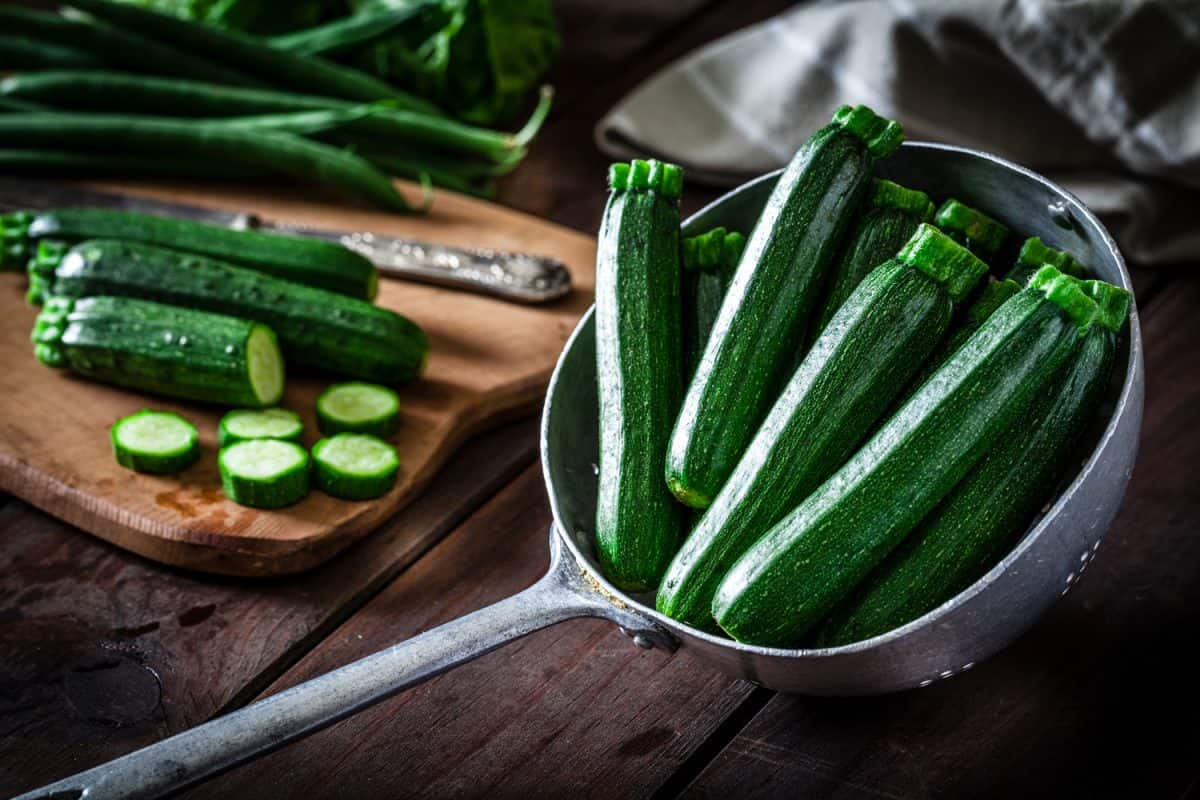
Zucchinis are abundant during the summer season. During that period, you may find your pantry overflowing with zucchinis especially if you live near rural areas and it's harvest season.
Of course, you don't want to throw away these refreshing squashes since you know there's a lot you can do with them. Fortunately, there are ways you can make them last for more than a few days until you can come up with what to do with them.
Here are ways you can store your zucchini squash.
Refrigerate the Zucchini
The easiest way to keep your zucchinis fresh is to simply store them in the refrigerator. Don't wash it yet if you're not planning to consume it any time soon since too much moisture can shorten its lifespan.
Don't cut them up into pieces so you can retain their crispiness. Put the whole zucchini in a paper or plastic bag and keep the other end open to encourage circulation. Put them in the crisper drawer and leave them for 1-2 weeks; you'll find they are still fresh.
Ideally, it is best to keep them in a place away from any sun exposure. If you have a walk-in fridge, place them in a dark corner to retain freshness.
Blanch & Freeze
Freezing the zucchini will make it last for up to three months. This method is ideal if you want to use it later for the pasta sauce, as a snack alternative, as a saute ingredient, or as a side dish. You can also use this if you intend to use it later for your casserole.
- Wash your squash to get rid of any dirt that may have accumulated on the skin.
- Cut them into rounds. The thickness depends on you, but the standard is about 1/4 inches thick. You can shred them too if you'd like.
- Bring a pot of water to a boil. Put the zucchinis into the water near-boiling. You can also steam them to make the process more convenient. Let them sit for 3-5 minutes.
- Prepare a bowl filled with water and ice. Throw the zucchinis into the bowl after boiling for an ice bath.
- Drain and dry the squash to get rid of excess water.
- Enclose the squashes in a freezer bag and pop them into the freezer.
Blanching the zucchinis destroys the bacteria that will cause them to rot over time. This process ensures that your squashes remain in an ideal condition even after months.
Freezing on a Baking Sheet
Another storing method for zucchinis after blanching is pre-freezing them on a baking sheet first. zucchini pieces tend to stick to one another as they ice over, making it difficult to separate them when it's time to cook.
Simply layer them on a large sheet, while ensuring that they are far from one another, and freeze them for 1-2 hours. Once they're frozen, carefully place them in a zip-lock or freezer bag before popping them into the freezer.
This will make it easier for you to take the zucchinis out when you've figured out what to do with them.
How to Freeze Shredded Zucchini
Some people prefer having their zucchinis grated instead of sliced. This is what you can do if you want to preserve shredded zucchini as a garnish for later.
- After shredding the zucchini using a grater or food processor, dry it out using a cheesecloth. Make sure it is completely dry since mold can grow on excess moisture. It can also have a mushy consistency later if it sits on too much water.
- Place 1-cup portions in small freezer bags. Separating them into smaller portions will ensure that they will not collect moisture later.
How to Preserve Zucchini
Although simply freezing them is easier, other methods can improve the zucchini's taste and make them more integrated with other cuisines.
However, note that only one type of zucchini can be preserved through canning; one that's called Zucchini-Pineapple. This is because most canned zucchinis do not have a determined shelf-life.
If the canned zucchinis have been sliced, they can lose their crunchiness since the heating patterns can affect their consistency. These heating patterns are determined by the number of zucchinis stored inside. For zucchini squashes, pickling is better.
If you want to try preserving your zucchinis using more natural means, here are things you can do.
Pickling
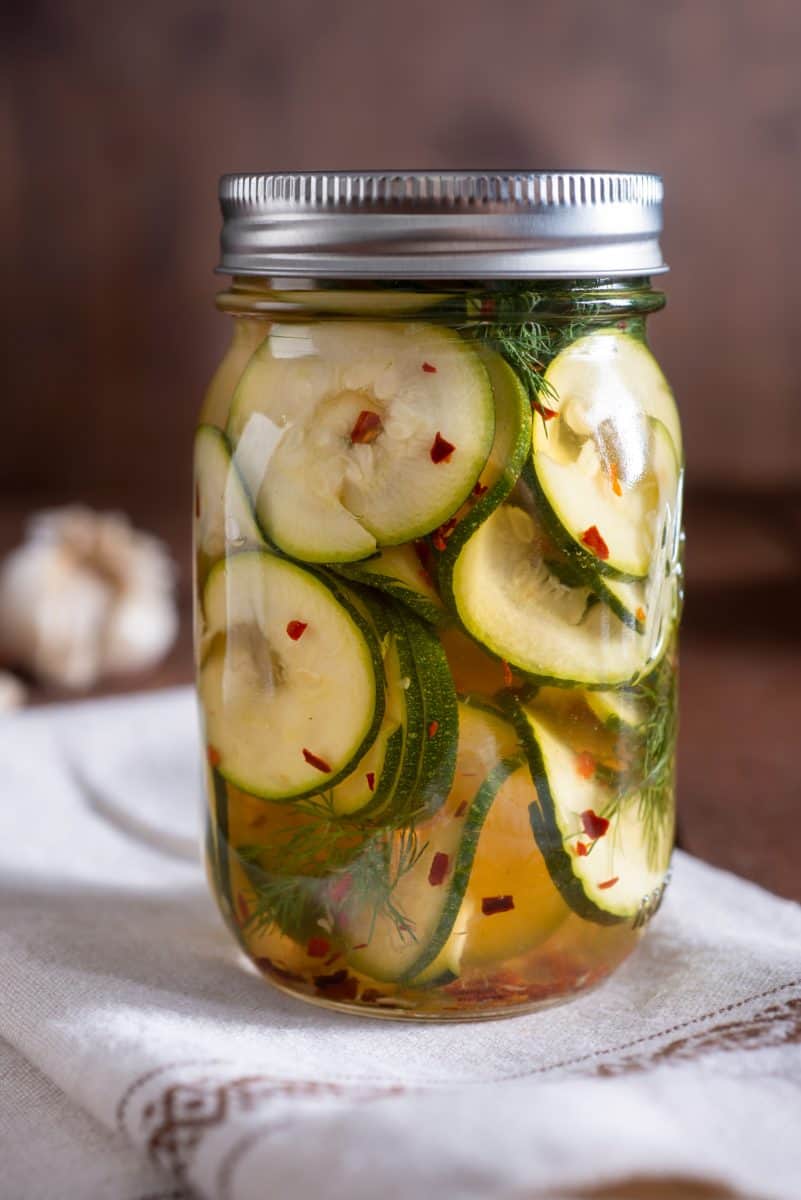
Pickling your zucchinis is simple and quick. Make sure you sterilize your jars before putting in your zucchini.
- Swirl boiling water around the jar and drain.
- Put in three half cloves of garlic, bay leaves, and peppercorns.
- Round slice your zucchini in 1/4-inch rings. Layer them inside the jar. Add some parsley between each zucchini ring.
- Prepare your marinade. Combine together 3 cups of hot water, 2 tablespoons of olive oil, 1/2-cup white vinegar, 1/3 cup granulated sugar, and 1 tablespoon of salt.
- Mix the marinade until everything is melded together and there are no more visible granules.
- Pour the marinade over the zucchinis.
- Cover with an airtight lid and let it cool to room temperature.
- Refrigerate for a minimum of 12 hours.
Pickled zucchinis can be consumed within 5-7 days.
Dehydration
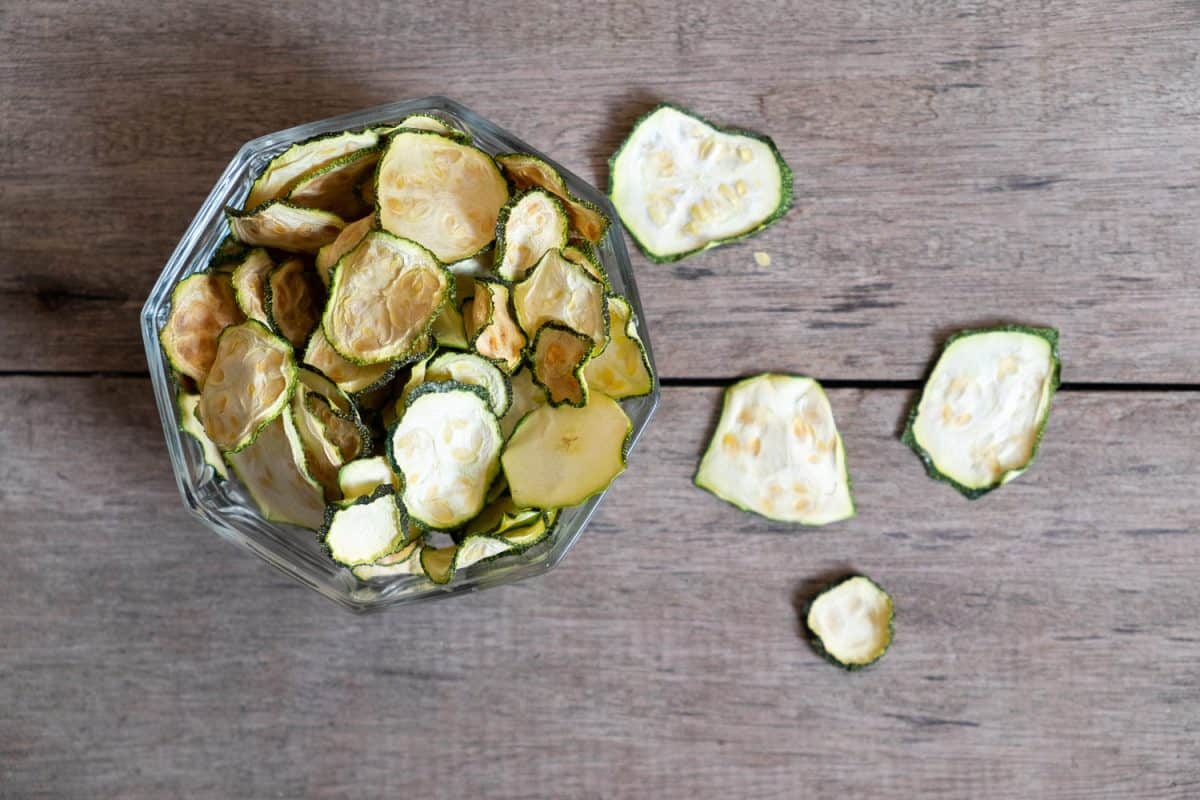
Before dehydrating, make sure you blanch the squashes completely to get rid of bacteria.
- Wash the zucchinis thoroughly. Make sure there is no dirt on the skin.
- Slice them into round 1/4-inch-thick pieces
- Put the zucchinis in a dehydrator tray and make sure they have adequate spaces between them.
- Set the dehydrator to 135F. This should take around six hours.
- If they have been dehydrated, let them cool on a sheet for 10 minutes.
- Place in airtight containers and store in a cool, dark place.
Should you always refrigerate hard squashes?
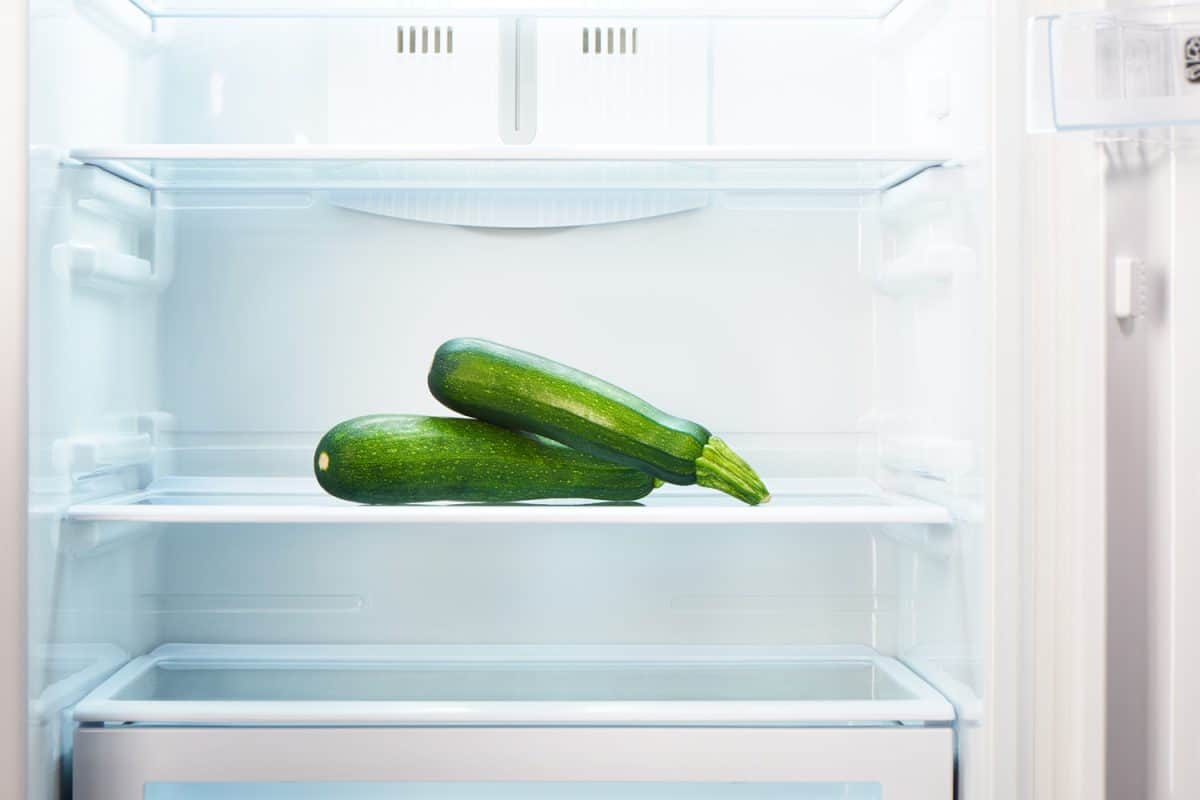
Summer squashes like zucchini should be refrigerated to maintain their crunchiness. However, thick-skinned squashes like butternut or kabocha should be kept at room temperature. The moisture in the fridge could make it rot more quickly.
Should you store squash blossoms?
Squash blossoms are delicate and have a very short shelf-life. It is recommended to consume them immediately after picking or purchasing.
However, you can try storing them in a fridge as long as they can't be reached by sunlight. Dry them on a baking sheet after washing and place them in a zip-lock bag, then store them in a cool and dark place. This can extend your squash blossom's life for up to a week.
Final Thoughts
Zucchini squashes are refreshing fruits that are popular in the summer. You can still add them as a garnish in other cuisines for an added crunch and to add a splash of color to any dish.
Storing them properly will ensure that you can enjoy the taste and crispiness even after a few days, and elevate the dishes you may whip up.
If you enjoyed this article, check out "How To Store Yeast" and "How To Pack Bowls For Moving"

